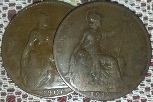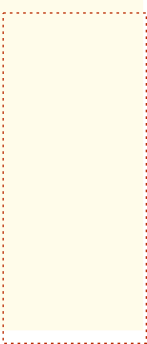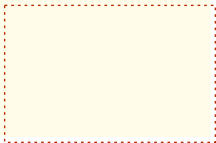© paperbacKnow limited 2013 -







The nature of Magic
For thousands of years, until the modern obsession with ‘science’, magic has been a part of our lives. Nowadays most of us know its not real, but ancient magicians still form an important part of our folk lore.
Could it have been entirely made up or is there some truth in it?
I think its safe to say that magic is as real as religion. A safe assumption because the word magic means relating to the magi. Yes, for those brought up in the Christian tradition, these are the same wise men from the east who came to pay tribute at the birth of Jesus. And the word originally described the priests of Zoroastrianism.
Today, if asked for some magic words, many people would suggest ‘Hocus Pocus’ This is a Catholic incantation used for many centuries in the rite of transubstantiation (changing bread or wafers into the body of Christ). At the crucial moment, the priest holds aloft the bread and declares ‘Hoc est Corpus Meum’ (‘this is my body’). But to the medieval peasant who spoke no Latin, it was just a jumble of sounds and became corrupted to Hocus Pocus.
But it wasn’t always priests. Terms such as wizard (wise person) and cunning man or woman (coming from the old English very cunnan -
And is that true magic?
Most people would think of magic as performing fantastic or impossible feats or influencing the course of events by supernatural means. That we felt the need to approach the wizard in the first place seems to support the first part. But what of the second? How do we judge whether something is done using supernatural means?
Like beauty, supernatural is in the eye of the beholder. It means, quite simply, beyond nature. And it must depend, therefore, on what we understand to be naturally possible.
Today, many of us carry around small boxes by means of which we can talk to people who are not present, or even see them. It is commonplace. To our ancestors a few centuries ago, such a device would certainly have been regarded as magical. To us it is not.
Why? It is not because the mobile phone has become a part of our everyday life, To our ancestors, magic was a part of everyday life and it was no less magic for it. No, what makes it magic is the inability to explain how it is done. We probably could not build one from a pile of parts, but we have a rough idea how a mobile telephone works. And it can all be explained by science. Magic is inexplicable (except perhaps to the magician). It does not have to be extraordinary
By its nature, we can not explain magic. (Or if we do, it will cease to be magic). The very essence of magic, therefore, is secrecy.
Recently I wrote about Wally Wallington who has developed techniques for moving megalithic blocks single-
Read more about Ed Leedskalnin and his Coral Castle.
The world is full of ancient monuments and relics which defy our understanding today.
Monuments such as Stonehenge and the Pyramids are constructed from huge stone blocks that would be difficult if not impossible to work with today.
How could our ancestors (who we know were primitive) have achieved thousands of years ago what we could not today?
One theory is that we were visited by extra terrestrials who either helped or told us how to do it.
An alternative is that they simply had knowledge which has been forgotten.
Maybe, however, it is not as hard as we might think. New research into the stone heads of Easter Island suggests that these huge stones could have been moved by a relatively small number of people.
Meanwhile, Wally Wallington moves huge stone blocks single handedly. And there is no suggestion that he has been trained by aliens. Simply that he was a builder who developed new skills when he had to improvise to get his job done.
Is there any reason why our ancestors could not have done what he does?
In folklore and fairytale we hear of the exploits of the great kings and warriors of old. But quite the most powerful characters in these stories are the wizards. King Arthur is remembered as a great king who united the Britons. Yet it was the wizard Merlin who made him king by placing the sword in the stone.
Do we dismiss these tales? They are, after all, but myths and legends.
But myths and legends are different from fiction. Seldom are they the invention of an active imagination. Normally they reflect some underlying truth.
So what is the truth? Is magic real.
Ed Leedskalnin might be considered a modern day magician. He constructed a castle in Homestead, Florida from enormous blocks of coral. He did it alone. And nobody knows how, because nobody saw him do it…
Read more about Ed Leedskalin’s Coral Castle
Rediscovering Forgotten Skills
Ruth Goodman and her friends returned to our screens with a new ‘farm’ series. Following on from Tales of the Green Valley, Victorian Farm, Edwardian Farm and Wartime Farm, Tudor Monastery Farm took a big leap back in time to their earliest period yet. Although based in principle at the Weald and Downland Museum, different parts of the programmes were filmed at a wide variety of locations. You can read more about this in my reviews of Tudor Monastery Farm.


What Happened to Alex Langlands
Missing from Tudor Monastery Farm was Alex Langlands. And sadly missed by many viewers. Alex has been busy on a number of other projects including finishing his Doctorate. I checked out what he’s been up to. Read more on Dr Alex Langlands.
Return to the